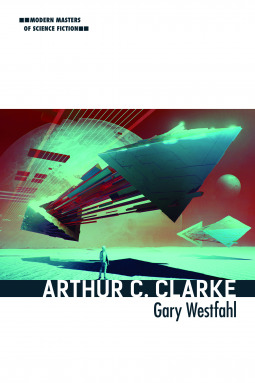
Of the “Big Three” authors who dominated the Golden Age of science fiction, I’ve always felt I had the weakest grasp on Arthur C. Clarke. Isaac Asimov’s oeuvre is easy to summarize: technological optimism and robots. Robert A. Heinlein tended to infuse his works with libertarian politics and nonconformists. As for Clarke? I’ve read several of his most famous novels and short stories, but always struggled to identify common themes. Clarke seems to veer wildly between hard-nosed science and wild-eyed mysticism. Childhood’s End features humans who gain almost godlike psychic powers, while Rendevouz with Rama tells the story of a scientific exploration to a mysterious alien object. Hal 9000 in 2001: A Space Odyssey seems like a warning against A.I., yet Clarke was hardly anti-science – most of Clarke’s protagonists are scientists. Continue reading ““Arthur C. Clarke” by Gary Westfahl”


 I wasn’t a big fan of Arthur C. Clarke’s novel Childhood’s End (see my full
I wasn’t a big fan of Arthur C. Clarke’s novel Childhood’s End (see my full 
